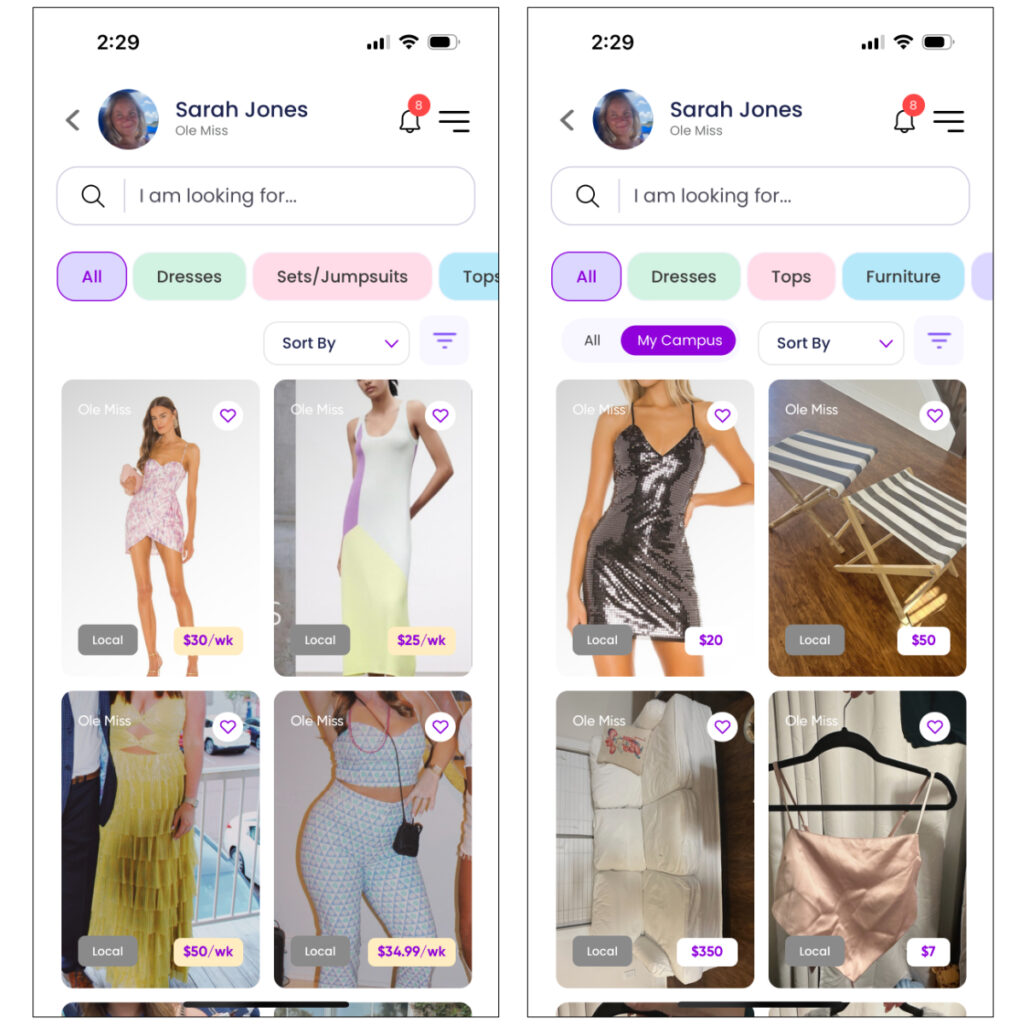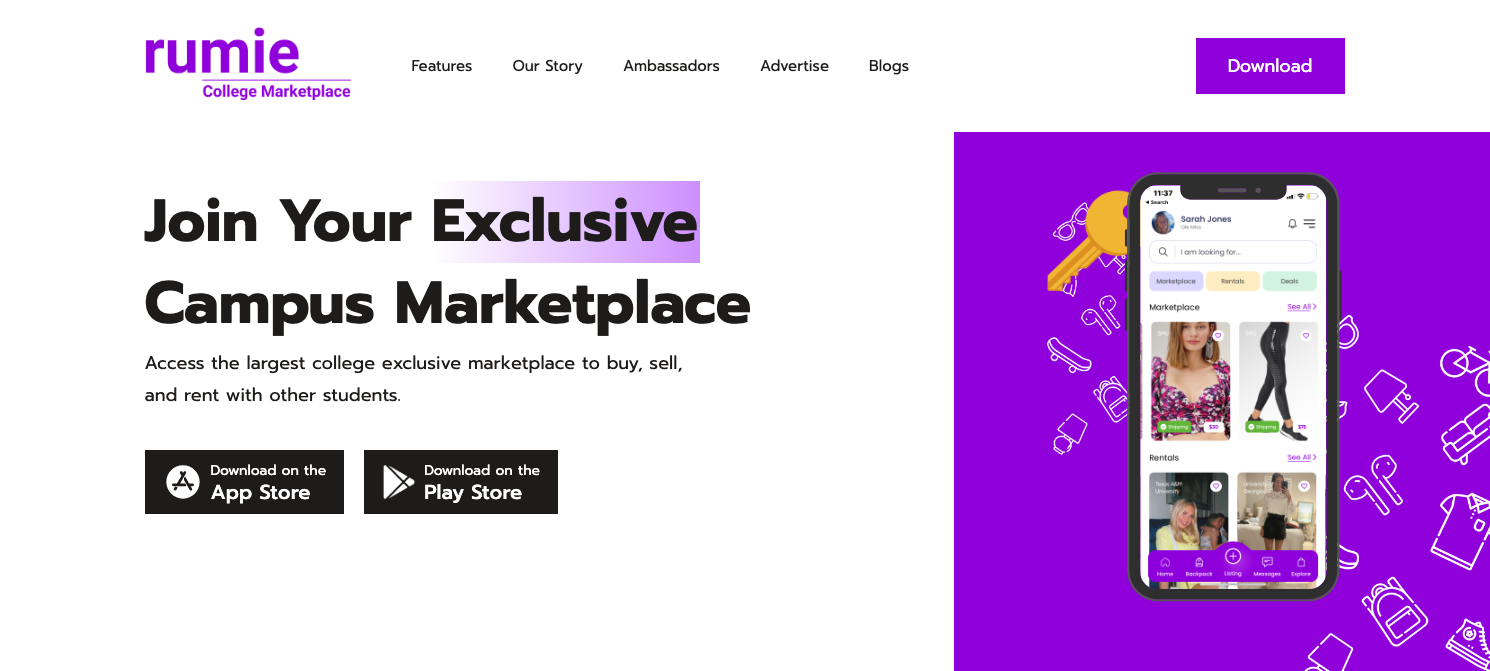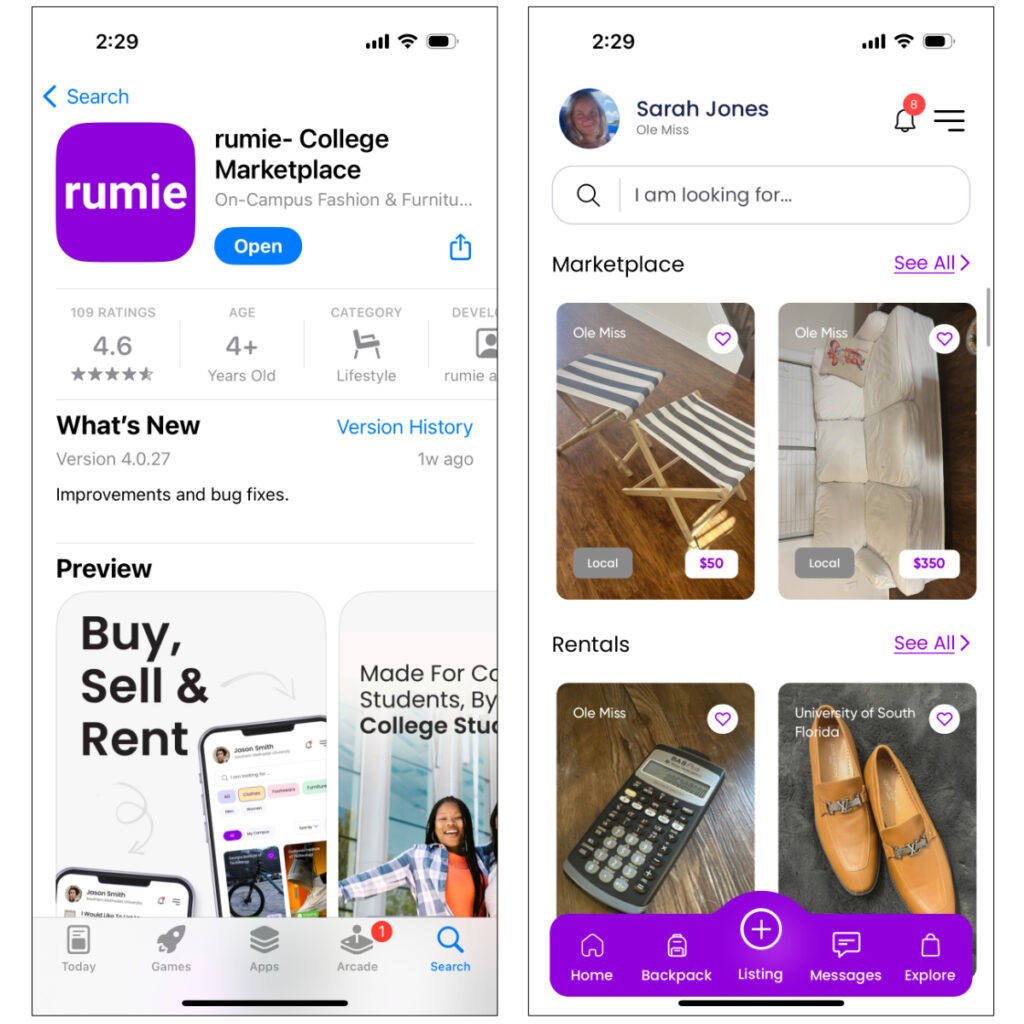In early 2023, Rumie App LLC, an Oxford-based technology startup founded by University of Mississippi students, earned a $100,000 Mississippi Seed Fund award to help them realize the potential in their campus-based marketplace for students. The only thing holding CEO Tanner McCraney back—even a little—was his final semester of study.
“I was a full-time student. Patrick [Phillips] and Caki [Field] were students as well,” McCraney said. Phillips is co-founder and COO, while Field heads marketing and outreach. “We’ve had to transition from students to full-time business owners and founders.”
rumie is an app-based online marketplace for college students that enables them to buy, sell or rent merchandise among one another while remaining safely on campus. The app requires students to register with a “.edu” email address to participate. Transactions range from selling used textbooks ($20 average) and furniture (up to $200) to reselling sports tickets or even renting formalwear to one another ($20 per rental).
McCraney says the 4.0 version of the app is more robust and has seen adoption not just at their home school—the University of Mississippi—but at other schools throughout the Southeastern Conference (SEC), as well as a few large universities in the Midwest such as Ohio State and the University of Michigan. Still, they’ve gotten plenty of feedback from users that keeps their development team—now also Mississippi-based—busy with updates.
McCraney said the most challenging part of the transition from student to startup founder has been learning to raise money, but they’ve had some success at that as well. In early 2024, the company closed its first seed round of funding for $450,000, with plans to focus on marketing the app and growing adoption.
“Shout-out to Lindsey (Benefield) at Innovate, who basically held our hand through the entire process in making sure that we were able to [get the seed round] fully closed,” said McCraney.
Rumie’s unique selling proposition lies in its ability to create local marketplaces within college campuses, offering a tailored solution for student needs. While it competes with more “open” buy-and-sell options such as Facebook Marketplace, eBay, and Instagram, the “closed” nature of rumie is part of its appeal. It makes it a safer option, says McCraney, and “an accessory to the college experience.”
Oh, and “Gen Z doesn’t use Facebook,” he said.
Rumie’s dual-faceted revenue model involves transactional income from marketplace activities and targeted advertising revenue from partnerships with local and national businesses. McCraney said the company currently makes most of its revenue from advertising, partly because students don’t have to use the app to complete the transaction if they prefer cash, Venmo or something else. If they use the app, some built-in guarantees ensure the transaction satisfies both parties, and rumie takes a small percentage. The app also offers services such as shipping for transactions between different campuses, although those are still rare.
Social media plays a crucial role in Rumie’s marketing and community-building efforts. Their team uses platforms like TikTok, Instagram, and Snapchat to engage with their target audience, furthering Rumie’s reach and brand recognition. But adoption hasn’t been as “build-it-and-they-will-come” viral as the team would have liked, while in-person and digital marketing efforts are part of the rumie 4.0 plan.

Strategic university partnerships could also play a role in rumie’s growth. Testing with their alma mater as a partner has been very successful, McCraney said. Through the app, which McCraney likens to a “mobile billboard,” the university can communicate with students about activities, parking passes, move-in and move-out dates, and similar milestones. Why not use email?
“Gen Z students, on average, have 125 unopened emails in their inbox,” McCraney said. See a pattern?
Being an official partner with colleges would likely lead to broad adoption, offer unique advertising opportunities for college-town businesses, and more firmly embed the tool in campus life. The team intends to pursue more partnerships if the test with UM continues to succeed.
As Rumie looks to the future, the company faces the challenges of scaling and refining its technology to meet growing demands. The focus will be on increasing adoption at other colleges in the SEC market, exploring additional revenue opportunities such as “deals” from local businesses and more transaction-revenue driven, and learning what it’ll take to expand to campuses nationwide.
McCraney says he’s proud to be running a technology startup from Mississippi and has been impressed with the resources and support that make it possible.
“Being in the tech space, we’ve had people all over the country who came from Mississippi and are reaching out, wanting to help,” McCraney said. “They’re rooting for us because it would be great to have another Mississippi-based tech startup make it in the world.”


